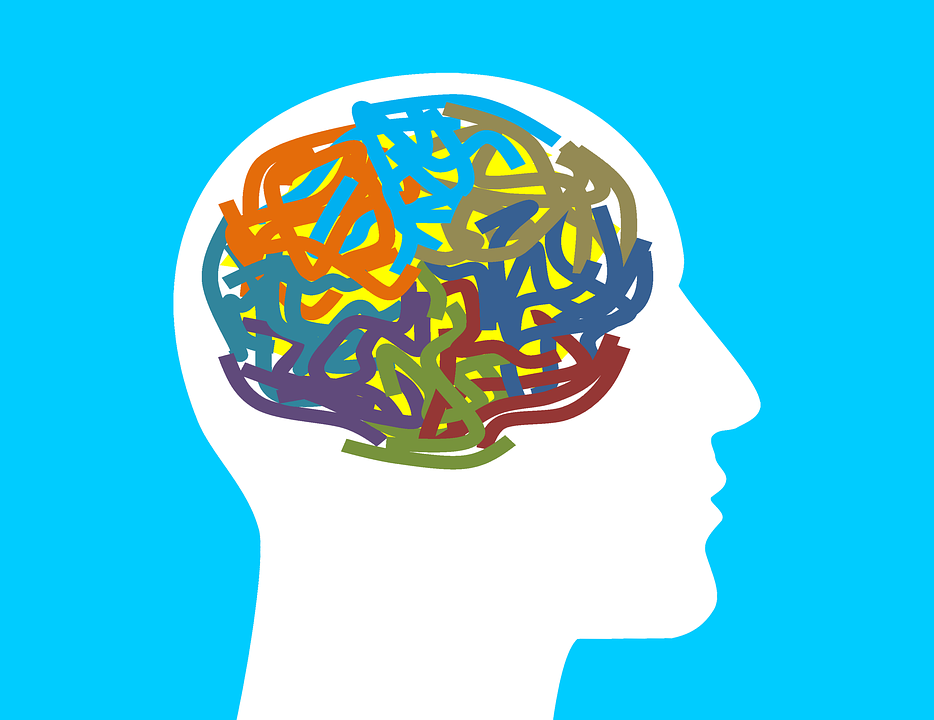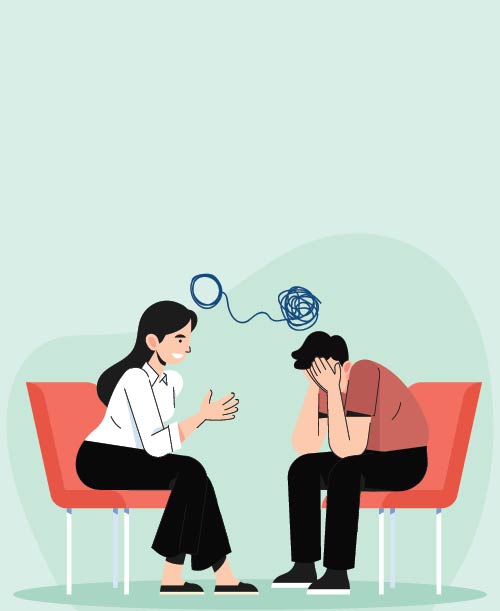Mental Health Resources for the Workplace: How Employers Can Support Staff
The Value of Mental Health And Wellness: a Deep Dive Into Counseling, Treatment, and Their Advantages
Psychological health greatly forms private well-being, impacting habits, emotions, and thoughts. Therapy and treatment function as essential methods for recovery and personal growth. They offer structured support, helping people browse life's obstacles. Yet, several continue to be not aware of the certain sorts of therapy readily available and their special advantages. Comprehending these elements is essential for any person thinking about specialist psychological health support. What complies with may illuminate paths to durability and gratification that numerous ignore.
Comprehending Mental Health And Wellness and Its Impact
Psychological health is typically overlooked, it plays a vital function in total wellness and everyday performance - Mental Health Resources. It includes psychological, mental, and social variables that affect just how individuals think, really feel, and behave. An individual's psychological wellness straight impacts their capacity to take care of tension, connect to others, and choose. Poor psychological health and wellness can bring about different problems, including anxiousness, clinical depression, and difficulty in preserving connections, every one of which can hinder specialist and personal growth.Furthermore, psychological health and wellness has far-reaching ramifications for physical health. Persistent anxiety and unattended psychological conditions can add to numerous physical disorders, such as cardiovascular disease and weakened immune feedbacks. Conversely, favorable psychological wellness fosters strength, making it possible for people to deal with life's challenges successfully. Recognizing mental health's significance is important for fostering helpful atmospheres that promote emotional wellness, therefore improving the high quality of life for people and communities alike
The Various Kinds of Counseling and Therapy
In the domain of psychological health and wellness, numerous counseling and treatment types cater to diverse requirements. Individual counseling methods concentrate on individual problems with one-on-one sessions, while team therapy dynamics foster shared experiences and assistance among individuals. Understanding these techniques is important for picking the ideal treatment for different difficulties.
Individual Counseling Strategies
Many individual counseling methods exist, each developed to resolve particular mental wellness problems and deal with differing customer needs. Cognitive Behavioral Therapy (CBT) focuses on identifying and altering negative idea patterns, while Psychodynamic Therapy explores previous experiences and subconscious procedures. Humanistic Therapy stresses individual growth and self-actualization, fostering an encouraging atmosphere. Social Therapy (IPT) targets partnership issues and interaction patterns to improve psychological wellness. Furthermore, Acceptance and Dedication Treatment (ACT) urges clients to approve their ideas and feelings while committing to individual values. Each strategy uses one-of-a-kind strategies and philosophies, permitting professionals to tailor their approaches to the person, consequently boosting the therapeutic experience and promoting psychological health recuperation.
Team Therapy Characteristics
Team therapy dynamics include different restorative techniques that utilize the power of interpersonal partnerships and common experiences. This type of treatment usually consists of varied teams, promoting a secure atmosphere for participants to reveal feelings and ideas. Trick types of team treatment consist of support system, which supply emotional assistance; process-oriented groups, concentrating on social interactions; and psychoeducational groups, aimed at giving understanding concerning mental wellness issues. The dynamics within these teams can enhance self-awareness, as participants typically review their habits in connection with others. Additionally, group treatment fosters a feeling of belonging, decreasing feelings of seclusion. With shared narratives and cumulative analytical, individuals can develop dealing strategies and gain understandings, inevitably adding to specific development and recovery.
The Duty of Counseling in Mental Health
Counseling plays an essential role in mental health and wellness by supplying various techniques customized to specific demands. These methods offer professional assistance that can cause substantial renovations in psychological health. Understanding the various kinds of counseling can assist people make informed decisions regarding their mental health and wellness treatment.

Sorts Of Therapy Methods
While different counseling approaches exist, each offers unique techniques and insights right into mental health and wellness treatment - Marriage Counselling. Among the most noticeable are cognitive-behavioral treatment (CBT), which concentrates on altering unfavorable idea patterns; psychodynamic treatment, which discovers unconscious procedures and youth experiences; and humanistic strategies, stressing individual growth and self-actualization. Furthermore, solution-focused brief treatment focuses on locating solutions in today instead of delving right into issues. Group treatment cultivates neighborhood and shared experiences, while household therapy addresses relational characteristics within domestic frameworks. Each method accommodates different needs, aligning with individual preferences, problems, and healing objectives. Understanding these methods assists clients make informed selections about their mental wellness trip and promotes effective therapy tailored to their one-of-a-kind scenarios
Advantages of Specialist Assistance
Many people benefit from specialist assistance in managing their psychological health and wellness difficulties. Counseling provides a risk-free room for clients to discover their thoughts and feelings without judgment. This restorative setting cultivates self-awareness, permitting people to identify patterns in their behavior and create healthier coping methods. Professional advice also provides accessibility to evidence-based strategies that can alleviate signs and symptoms of stress and anxiety, depression, and other mental health problems. Additionally, therapists can aid in setting reasonable objectives and use support in attaining them, improving overall wellness. The joint connection between therapist and client is essential, as it advertises liability and urges personal growth. Inevitably, expert guidance plays a crucial function in guiding mental wellness trips, resulting in enhanced emotional durability and life contentment.
Advantages of Therapy: Recovery and Development

Exactly how to Pick the Right Specialist or Therapist
Just how can one browse the typically frustrating process of choosing the right therapist or therapist? Identifying personal needs is necessary; people should consider their specific problems, whether anxiety, stress and anxiety, or relationship difficulties. It is advantageous to research various healing approaches, such as cognitive-behavioral therapy or psychodynamic treatment, to locate an appropriate match.Next, possible customers ought to seek references from trusted sources or utilize on the internet directories. It is crucial to review specialists' credentials, including their education and learning, licensing, and locations of expertise. Setting up first appointments can assist assess compatibility, allowing individuals to assess interaction styles and individual comfort.Finally, logistical elements, such as area, accessibility, and costs, ought to also be taken into consideration. By attentively evaluating these elements, one can make an informed choice, eventually fostering a therapeutic connection that sustains mental health and wellness and personal development.
Conquering Preconception: Accepting Mental Health Assistance
While societal perspectives towards mental wellness have evolved, preconception still presents a substantial obstacle for numerous seeking support. This stigma frequently shows up as misunderstandings bordering mental disease, leading people to feel pity or concern concerning their struggles. Many individuals wait to seek counseling or therapy because of fears about being judged or identified. Overcoming this preconception is fundamental for promoting a supportive setting where people can honestly review their mental health and wellness needs.Communities and organizations play an important duty in this transformation by promoting awareness and education concerning mental health issues. Efforts that highlight individual tales official website can humanize these experiences, urging others to seek help without fear. As acceptance grows, individuals might feel a lot more encouraged to accept mental health assistance, recognizing it as an important element of total well-being. By taking apart preconception, culture can cultivate a culture of understanding, empathy, and aggressive psychological wellness care.
Strategies for Keeping Psychological Wellness Beyond Therapy
Therapy offers beneficial support, keeping mental health outside of sessions is equally vital. People can implement a number of strategies to sustain their psychological health. Routine exercise plays an important duty, as workout promotes the launch of endorphins, which enhance mood. In addition, a balanced diet regimen abundant in nutrients can significantly impact psychological security and energy levels.Practicing mindfulness and reflection aids people manage stress and anxiety and develop higher self-awareness. Establishing a constant sleep routine is also basic, as high quality rest is crucial for cognitive feature and emotional regulation.Engaging in social tasks cultivates link and reduces feelings of seclusion. Seeking rate of interests or pastimes can give a creative electrical outlet and increase self-worth. Exercising and establishing practical objectives self-compassion allows people to grow durability. By integrating these strategies right into day-to-day life, people can effectively support their mental wellness beyond treatment sessions.
Frequently Asked Questions

Just How Can I Tell if I Required Therapy?

Determining the requirement for therapy typically entails identifying relentless feelings of despair, anxiousness, or overwhelming stress. If day-to-day operating comes to be challenging or coping devices stop working, looking for professional assistance might be a helpful advance.
What Should I Anticipate in My Very First Therapy Session?
In the very first therapy session, individuals can anticipate an introduction, this contact form conversation of their reasons for looking for help, and a summary of the therapist's strategy, creating a structure for future discussions and establishing convenience in the healing area.
Are Online Therapy Sessions as Effective as In-Person Ones?
Research suggests that online therapy sessions can be as effective as in-person ones. Variables such as the therapist's qualifications, customer involvement, and the healing connection significantly influence outcomes, despite the medium made use of.
Can Therapy Assist With Partnership Issues?
Therapy can help people in dealing with relationship concerns by giving tools for interaction, comprehending feelings, and fixing disputes. Mental Health Resources. It promotes much healthier characteristics and motivates personal development, eventually cultivating more powerful, much more fulfilling links in between companions
The Length Of Time Does Treatment Generally Last?
Treatment duration varies substantially based on private demands and goals. Commonly, sessions may last from a couple of weeks to a number of months, with some people participating in ongoing therapy to resolve lasting issues and personal growth. Cognitive Behavior Treatment (CBT) focuses on determining and altering unfavorable thought patterns, while Psychodynamic Treatment discovers unconscious processes and previous experiences. Key kinds of group therapy consist of assistance groups, which offer emotional support; process-oriented teams, focusing on interpersonal interactions; and psychoeducational teams, intended at giving expertise regarding mental health issues. Among the most noticeable are cognitive-behavioral therapy (CBT), which concentrates on changing negative thought patterns; psychodynamic treatment, which explores subconscious procedures and childhood experiences; and humanistic strategies, emphasizing personal development and self-actualization. try this site Team therapy promotes area and shared experiences, while household treatment addresses relational dynamics within familial frameworks. It is helpful to research various restorative methods, such as cognitive-behavioral treatment or psychodynamic therapy, to discover an ideal match.Next, potential clients ought to seek references from trusted resources or use on-line directories.